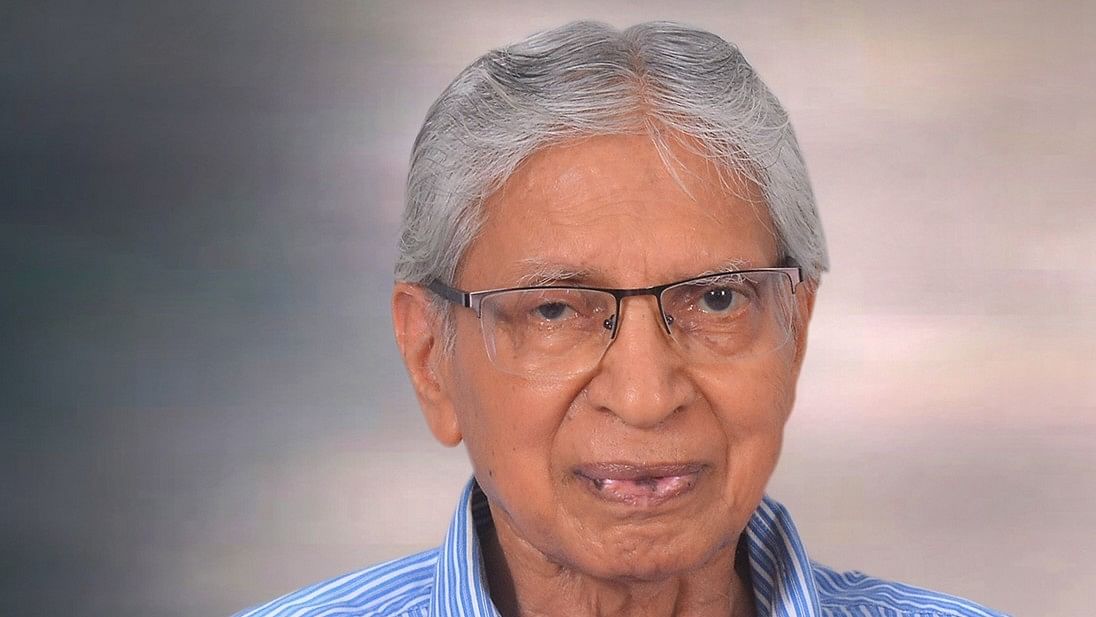
Veteran Indian astrophysicist Prahlad Chandra Agrawal
Credit: Special Arrangement
New Delhi: Veteran Indian astrophysicist Prahlad Chandra Agrawal – the brain behind India’s first dedicated astronomy satellite Astrosat – on Monday received the prestigious COSPAR Harrie Massey Award 2024 at a scientific conference in Busan.
The award by the International Science Council Committee on Space Research recognises outstanding contributions to the development of space research, in which a leadership role is of particular importance.
Along with a medal and citation, the awardee is honoured by the naming of a minor planet. The minor planet named after him would be known as Agrawal 20064, said his daughter Rashmi Bansal.
Agrawal, 83, was the guiding force and Principal Investigator for the AstroSat project, which was launched in September 2015. The satellite was built on a frugal budget of $50 million (Rs 400 crore).
Planned as a five year mission, Astrosat is still producing useful data and its observations have been cited in over 300 research papers. The satellite has the unique capability of viewing celestial objects with a suite of 4 co-aligned instruments and an X-ray sky monitor on a single satellite platform.
Astrosat is the result of collaborative efforts involving Tata Institute of Fundamental Research (TIFR) Mumbai, where Agrawala worked and Indian Institute of Astrophysics and ISRO’s U R Rao Satellite Centre.
Prior to the Astrosat, he proposed and led a team to realise the Indian X-ray Astronomy Experiment (IXAE) aboard the Indian satellite IRS-P3 launched in March 1996.
Agrawal, a former Senior Professor at TIFR, holds a Bachelor’s degree in Physics from Vikram University, Ujjain and a PhD from Mumbai University. He joined TIFR in 1962.
Other COSPAR awardees include Anil Bhardwaj, director, Physical Research Laboratory, Ahmedabad who received the Vikram Sarabhai Medal - a joint award of COSPAR and the Indian Space Research Organization – Sarabhai, the architect of the Indian space programme.
